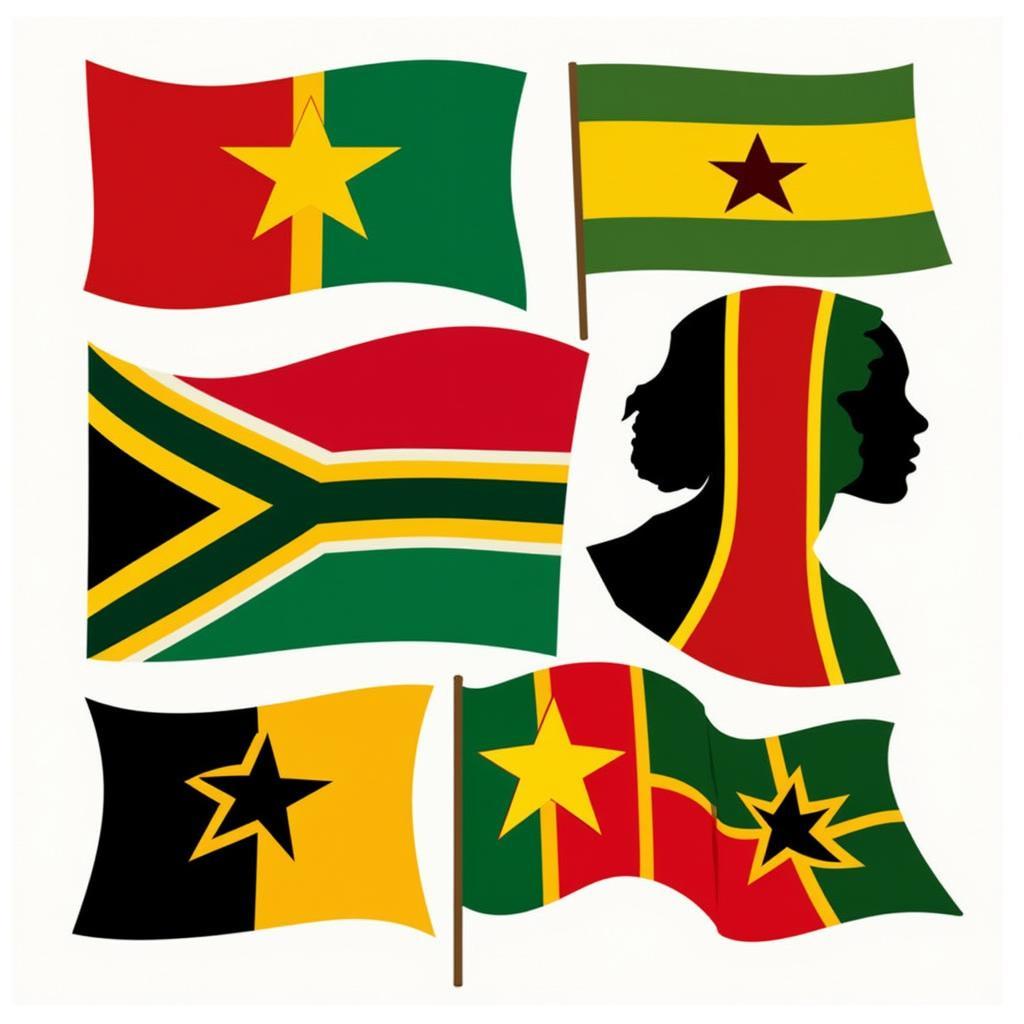African American vs Black: Understanding the Nuances of Identity
The terms “African American” and “Black” are often used interchangeably, but they carry distinct historical and cultural weight. Understanding these nuances is crucial for navigating the complexities of identity and race, particularly in the context of a global audience.
The Evolution of Terminology
“African American” emerged in the late 20th century as a more specific term to identify individuals of African descent who were born or have ancestry in the United States. This term acknowledges the unique historical experience of Black people in America, including the legacy of slavery and the ongoing struggle for equality.
“Black” has a broader scope and encompasses people of African descent worldwide. It reflects a shared heritage and experiences of oppression, discrimination, and resilience across the globe.
Historical Context
The terms “African American” and “Black” evolved over time, reflecting shifts in the understanding of identity and race.
“Black” was initially used as a derogatory term during the transatlantic slave trade, but later embraced as a source of pride and solidarity within the Black community.
“African American” gained prominence in the 1970s and 1980s, alongside movements for Black empowerment and cultural recognition. It sought to highlight the African roots and American experiences of a distinct group of people.
Cultural Significance
Both terms hold significant cultural meaning:
-
“African American” represents the shared history and cultural heritage of Black Americans, including traditions, music, literature, and art forms. It embodies a unique cultural identity forged within the context of American society.
-
“Black” signifies a broader sense of belonging and shared experiences across the African diaspora. It connects people of African descent through a common history of struggle and celebration of their unique contributions to global culture.
Navigating the Language
While the terms “African American” and “Black” can be used interchangeably in some contexts, it’s important to be mindful of the nuances they carry.
-
“African American” is generally preferred in the context of American society, especially when discussing issues specific to the Black experience in the United States.
-
“Black” is more inclusive and broadly applicable when referring to people of African descent globally.
A Global Perspective
The terms “African American” and “Black” are part of a broader conversation about racial identity and representation. Understanding these distinctions helps to foster greater awareness and appreciation of the diversity within the Black community worldwide.
“Black” is a powerful term that transcends national borders and speaks to a shared heritage, resilience, and ongoing struggle for social justice. It embodies the richness and diversity of African cultures and the contributions of Black people around the globe.
Key Takeaways
-
While often used interchangeably, “African American” and “Black” carry distinct historical and cultural implications.
-
“African American” is generally preferred in the context of the United States, while “Black” has a broader scope encompassing people of African descent globally.
-
Recognizing these nuances contributes to a deeper understanding of identity, race, and the ongoing dialogue about social justice.
FAQ
1. What is the origin of the term “Black”?
The term “Black” is a historical term that initially emerged during the transatlantic slave trade. It was used as a derogatory term to distinguish enslaved Africans from their European captors. However, the term was later reclaimed by Black communities as a source of pride and solidarity.
2. What is the difference between “African American” and “Black” in the context of race?
“African American” is a term used to identify individuals of African descent who were born or have ancestry in the United States. “Black” is a broader term encompassing people of African descent worldwide.
3. Is it appropriate to use “African American” and “Black” interchangeably?
While both terms can be used interchangeably in some contexts, it’s important to be mindful of the nuances they carry. “African American” is generally preferred in the context of American society, while “Black” is more inclusive and broadly applicable globally.
4. What are some other terms used to refer to people of African descent?
“Black” is the most common term used to refer to people of African descent globally. Other terms may include “Afro-descendent,” “African Diaspora,” or specific ethnic groups such as “Nigerian,” “Kenyan,” or “Ethiopian.”
5. Why is understanding these terms important?
Understanding the different terms and their historical and cultural significance allows for greater sensitivity, accuracy, and inclusivity in conversations about race and identity. It acknowledges the diverse experiences of Black people worldwide and fosters greater understanding and respect.
6. How can I use these terms respectfully?
It’s best to listen to individuals and use the terms they prefer to identify themselves. When unsure, use “Black” as a respectful and inclusive term for people of African descent worldwide.

